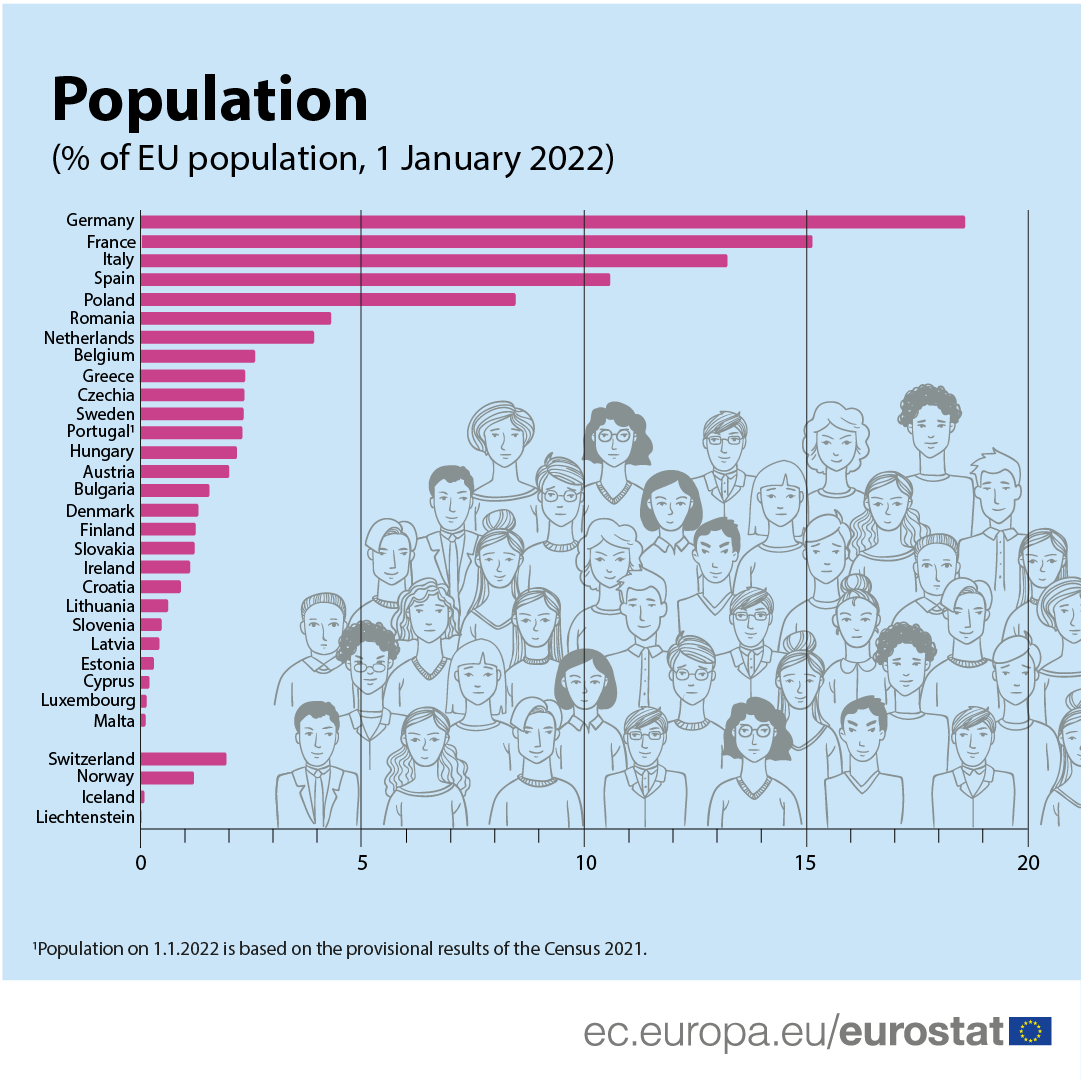The EU's population decreased again in 2021, following the first decline in population growth in 2020 due to the impact of the Covid-19 pandemic, Eurostat, the EU's office for statistics, has announced in a new report.
On 1 January 2021, the EU's population went from 447 million to 446.8 on 1 January 2022. The negative natural change (more deaths than births) was higher than the positive net migration for a second consecutive year, probably due to the pandemic.
There were 531,000 more deaths in the EU in 2020 than in 2019. In 2021, there were 113,000 more deaths than the previous year.
Related News
- World population set to pass 8 billion in November
- Czech Republic takes over EU presidency under a cloud of uncertainty
For a long period, the EU's population grew from 354.5 million in 1960 to 446.8 million on 1 January 2022, an increase of 92.3 million people. The EU population increased, on average, by about 0.7 million persons per year during the period 2005–2022, compared with an average increase of around 3.0 million persons per year during the 1960s.

% of the EU population, 1 January 2022. Credit: Eurostat
Each EU Member State had populations ranging in very different sizes on 1 January 2022 from 0.5 million in Malta, 11.5 in Belgium to 83.2 million in Germany. Put together, Germany, France and Italy contained almost half (47%/ of the EU population on 1 January 2022.
Yet as the general EU population decreased for a second year, population decreases were not reported in every Member State.
A total of ten countries recorded a decrease in population between 1 January 2021 and 2022, with the greatest decrease reported in Italy (-253,000) and the smallest in Slovenia (-1,800). Increases were observed in 17 other countries including Belgium (76,369), with the largest in France (185,900) and the smallest in Estonia (1,700).

